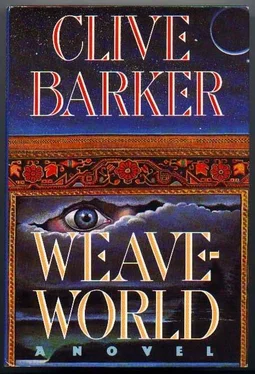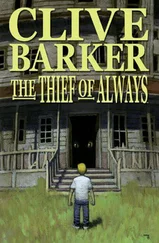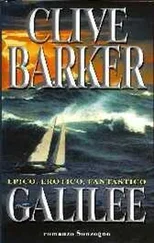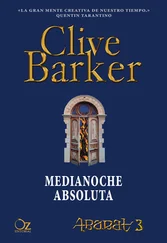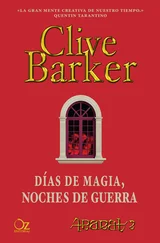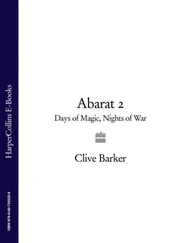Clive Barker - Weave World
Здесь есть возможность читать онлайн «Clive Barker - Weave World» весь текст электронной книги совершенно бесплатно (целиком полную версию без сокращений). В некоторых случаях можно слушать аудио, скачать через торрент в формате fb2 и присутствует краткое содержание. Жанр: Фантастика и фэнтези, на английском языке. Описание произведения, (предисловие) а так же отзывы посетителей доступны на портале библиотеки ЛибКат.
- Название:Weave World
- Автор:
- Жанр:
- Год:неизвестен
- ISBN:нет данных
- Рейтинг книги:4 / 5. Голосов: 1
-
Избранное:Добавить в избранное
- Отзывы:
-
Ваша оценка:
- 80
- 1
- 2
- 3
- 4
- 5
Weave World: краткое содержание, описание и аннотация
Предлагаем к чтению аннотацию, описание, краткое содержание или предисловие (зависит от того, что написал сам автор книги «Weave World»). Если вы не нашли необходимую информацию о книге — напишите в комментариях, мы постараемся отыскать её.
Weave World — читать онлайн бесплатно полную книгу (весь текст) целиком
Ниже представлен текст книги, разбитый по страницам. Система сохранения места последней прочитанной страницы, позволяет с удобством читать онлайн бесплатно книгу «Weave World», без необходимости каждый раз заново искать на чём Вы остановились. Поставьте закладку, и сможете в любой момент перейти на страницу, на которой закончили чтение.
Интервал:
Закладка:
That was not to say he would give up looking to the future. True, he was just a Cuckoo: scared and weary and alone. But so, in the end, were most of his tribe: it didn't mean all was lost. As long as they could still be moved by a minor chord, or brought to a crisis of tears by scenes of lovers reunited; as long as there was room in their cautious hearts for games of chance, and laughter in the face of God, that must surely be enough to save them, at the last.
If not, there was no hope for any living thing.
BOOK THREE. OUT OF THE EMPTY QUARTER
Part Ten. The Search for the Scourge
‘... if you gaze for long into an abyss, the abyss gazes also into you.' Friedrich Nietzsche Beyond Good and Evil
I
NO REST FOR THE WICKED
1
Before the explorers, the Rub al Khali had been a blank space on the map of the world. After them, it remained so.
Its very name, given to it by the Bedu, the desert nomads who'd lived for unnumbered centuries in the deserts of the Arab Peninsula, meant: The Empty Quarter. That they, familiar with wildernesses that would drive most men insane, should designate this place empty was the most profound testament to its nullity imaginable.
But amongst those Europeans for whom names were not proof enough, and who had, from the beginning of the nineteenth century, gone looking for places to test their mettle, the Rub al Khali rapidly acquired legendary status. It was perhaps the single greatest challenge the earth could offer to adventurers, its barrenness unrivalled by any wasteland, equatorial or arctic.
Nothing lived there, nor could. It was simply a vast nowhere, two hundred and fifty thousand square miles of desolation, its dunes rising in places to the height of small mountains, and elsewhere giving way to tracts of heat-shattered stone large enough to lose a people in. It was trackless, waterless and changeless. Most who dared its wastes were swallowed by it, its dust increased by the sum of their powdered bones.
But for that breed of man - as much ascetic as explorer -who was half in love with losing himself to such an end – the number of expeditions that had retreated in the face of the Quarter's maddening absence, or disappeared into it, was simply a spur.
Some challenged the wasteland in the name of cartology, determined to map the place for those who might come after them, only, to discover that there was nothing to map but the chastening of their spirit. Others went looking for lost tombs and cities, where fabled wealth awaited that man strong enough to reach into Hell and snatch it out. Still others, a patient, secretive few, went in the name of Academe, seeking verification of theories geological or historical. Still others looked for the Ark there; or Eden.
All had this in common: that if they returned from the Empty Quarter- even though their journey might have taken them only a day's ride into that place - they came back changed men. Nobody could set his eyes on such a void and return to hearth and home without having lost a part of himself to the wilderness forever. Many, having endured the void once, went back, and back again, as if daring the desert to claim them; not content until it did. And those unhappy few who died at home, died with their eyes not on the loving faces at their bedside, nor on the cherry tree in blossom outside the window, but on that waste that called them as only the Abyss can call, promising the soul the balm of nothingness.
2
For years Shadwell had listened to Immacolata speak of the emptiness where the Scourge resided. Mostly she'd talked of it in abstract terms: a place of sand and terror. Though he'd comforted her in her fear as best he'd known how, he'd soon stopped listening to her babble.
But standing on the hill overlooking the valley which the Fugue had once occupied, blood on his hands and hatred in his heart, her words had come back to him. In subsequent months he'd set himself the task of discovering that place for himself.
He had chanced on pictures of the Rub al Khali early in his investigations, and had quickly come to believe that this was the wasteland she'd seen in her prophetic dreams. Even now, in the latter portion of the century, it remained largely a mystery. Commercial aircraft routes still gave it wide berth, and though a road now crossed it the desert swallowed the efforts of any who attempted to exploit its spaces. Shadwell's problem was therefore this: if indeed the Scourge did live somewhere in the Empty Quarter, how would he be able to find it in a void so vast?
He began by consulting the experts: in particular an explorer called Emerson, who had twice crossed the Quarter by camel. He was now a withered and bed-bound old man, who was at first contemptuous of Shadwell's ignorance. But after a few minutes' talk he warmed to the obsessive in his visitor, and offered much good advice. When he spoke of the desert it was as of a lover who'd left stripes upon his back, yet whose cruelty he ached to have again.
As they parted he said:
‘I envy you, Shadwell. God alive, I envy you.'
3
Though Emerson had told him that the desert was always a solitary experience, Shadwell did not go alone to the Rub al Khali; he took Hobart with him.
The Law no longer called Hobart as it had. An investigation into the events that had all but destroyed his Division had found him criminally negligent; he might well have been imprisoned but that his masters concluded he was unbalanced - indeed probably always had been - and that exposing a system that would employ such a madman to the scrutiny of a court case would cover none of them in glory. Instead a complete story was fabricated - which made heroes of those men who'd gone into the Fugue with Hobart and died there, and retired on full pay those who'd emerged with their sanity in tatters. There was a valiant attempt by several bereaved wives to discredit this fiction, but when hints of the real explanation were uncovered it seemed infinitely more unlikely than the lie. Nor were the survivors able to give any coherent account of what they'd experienced. Those few details they did unburden themselves of merely served to confirm their lunacy.
Hobart, however, did not have madness as a place of retreat, having been in its hold for years. The vision of fire that Shadwell had given him - and which had first claimed him for the Salesman's faction - obsessed him still, despite the fact that the coat had been discarded. Knowing that in Shadwell's company his obsession would not be mocked, Hobart elected to remain there. With Shadwell, his dreams had come closest to being realized; and, though their shared ambitions had been defeated, the man still spoke a language Hobart's dementia understood. When the Salesman talked of the Scourge, Hobart knew it could only be the Dragon of his dreams by another name. Once, he half-remembered, he'd sought that monster in a forest, but he'd found only confusion there. It had been a sham, that Dragon; not the true beast he still longed to meet. He knew where that legend waited now: not in a forest but a desert, where its breath had reduced all living matter to ash and sand.
They went together, therefore, to a village on the Southern fringe of the Quarter; a place so inconsequential it couldn't even lay claim to a name.
Here they were obliged to leave their jeep, and, with their driver as interpreter, pick up guides and camels. It was not simply the practical problems of crossing the Quarter by vehicle that made Shadwell forsake wheel for hooves. It was a desire - encouraged by Emerson - to be as much a part of the desert as was possible. To go into that void not as conquerors but as penitents.
Locating their two guides for the expedition was the business of an hour, no more, there being so few either willing or able-bodied enough to make the journey. Both men were of AM Murra tribe, who alone of all the tribes claimed spiritual kinship with the Quarter. The first, a fellow called Mitrak ibn
Читать дальшеИнтервал:
Закладка:
Похожие книги на «Weave World»
Представляем Вашему вниманию похожие книги на «Weave World» списком для выбора. Мы отобрали схожую по названию и смыслу литературу в надежде предоставить читателям больше вариантов отыскать новые, интересные, ещё непрочитанные произведения.
Обсуждение, отзывы о книге «Weave World» и просто собственные мнения читателей. Оставьте ваши комментарии, напишите, что Вы думаете о произведении, его смысле или главных героях. Укажите что конкретно понравилось, а что нет, и почему Вы так считаете.
